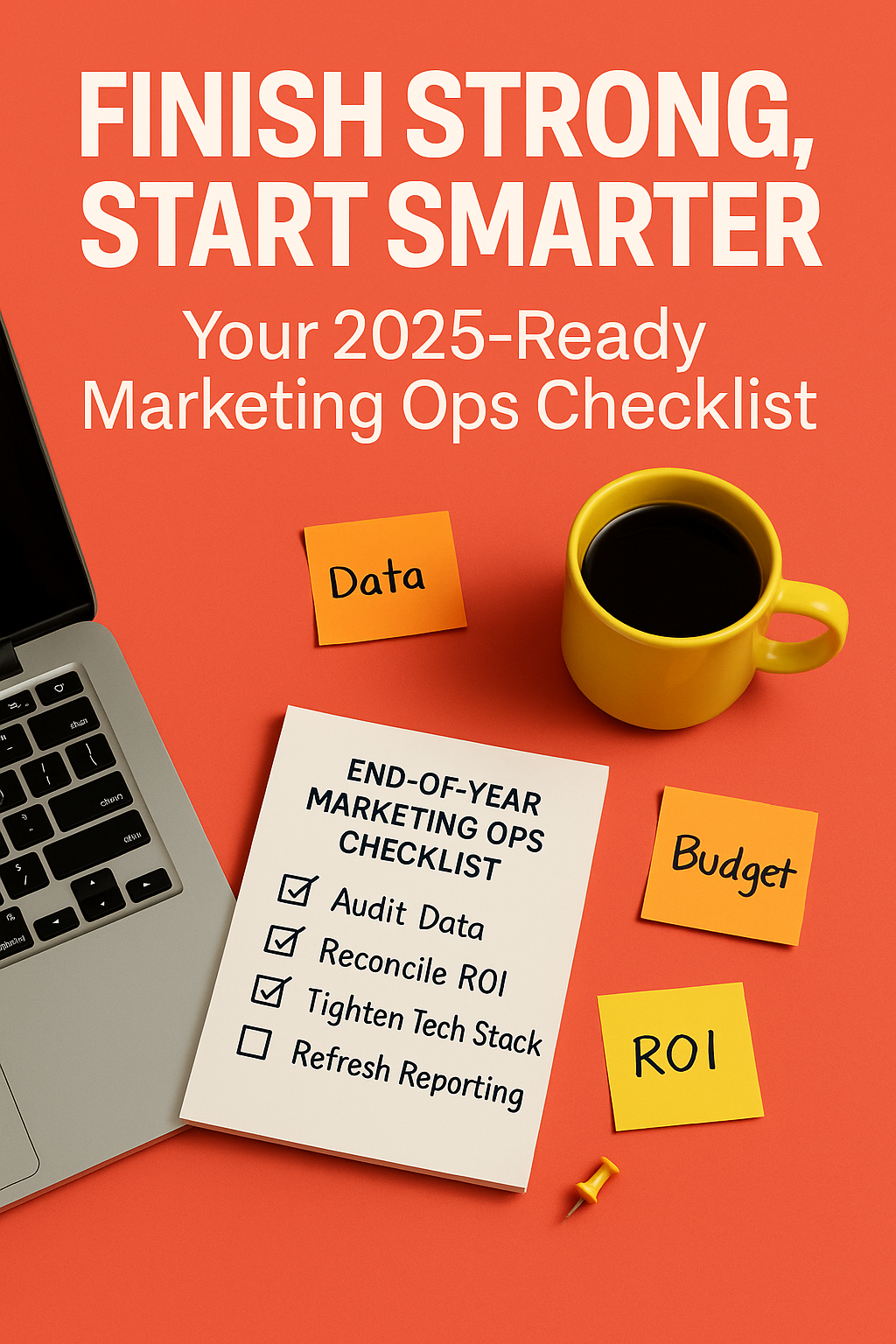It’s EOY…Time to Clean Up Your Ops
As budget season hits, most teams scramble to defend spend, rebuild reports, and fix what’s been breaking all year. But here’s the truth: your ability to prove impact, tighten systems, and plan smarter depends on how well you close out this year.
So before you set 2026 goals, clean house.
1. Audit Your Data (Before You Build Next Year’s Plans)
Why it matters: Bad data = bad decisions. And that’s how budgets get cut.
What to do:
Clean contact and account data (duplicates, dead leads, bounced emails)
Review lifecycle stages and lead statuses for accuracy
Validate UTM tagging and campaign naming conventions
Archive inactive workflows and outdated scoring models
2. Reconcile Spend vs. ROI
Why it matters:
CFOs don’t care about “awareness.” They care about ROI.
What to do:
Pull YTD spend by channel, campaign, and vendor
Map pipeline and revenue attribution to each
Identify tools or vendors with low usage or unclear ROI
Flag where automation or consolidation could save money
3. Tighten Your Tech Stack
Why it matters: Overlapping tools = wasted budget and integration nightmares.
What to do:
Inventory your martech tools (who uses what, how often, why)
Confirm licenses and renewals line up with 2026 needs
Cut or consolidate redundant platforms
Document every integration and data sync
4. Refresh Reporting + Dashboards
Why it matters: If leadership can’t see impact, they won’t fund it.
What to do:
Audit dashboards for accuracy and relevance
Standardize core KPIs (MQL→SQL %, pipeline velocity, CAC payback)
Automate recurring reports for QBRs and board reviews
Add AI/forecasting layers where they help — not just because they’re trending
5. Align GTM + Ops for 2026
Why it matters: Strategy without execution alignment = another year of silos.
What to do:
Sync with demand gen, sales, and finance on shared metrics
Confirm funnel definitions, routing, and SLAs
Build a Q1 campaign and ops calendar with key launch dates
Set OKRs tied to measurable impact
6. Archive, Document, and Backup
Why it matters: Institutional knowledge walks out the door fast.
What to do:
Document workflows, field mappings, and key automations
Export and store campaign performance reports
Update process docs in your shared workspace (Notion, Asana, etc.)
Prep for new hires, audits, or platform migrations
7. Plan for Optimization, Not Overhaul
Why it matters: Growth comes from iteration, not reinvention.
What to do:
Identify what worked → scale it
Flag friction points in process, data, or handoffs
Turn “fire drills” into planned optimizations
Build a 90-day roadmap that starts day one of Q1
Final Thought
Don’t start January cleaning up last year’s mess. End clean. Start confident.
Want help getting your ops house in order before the new year? Let’s Talk…
